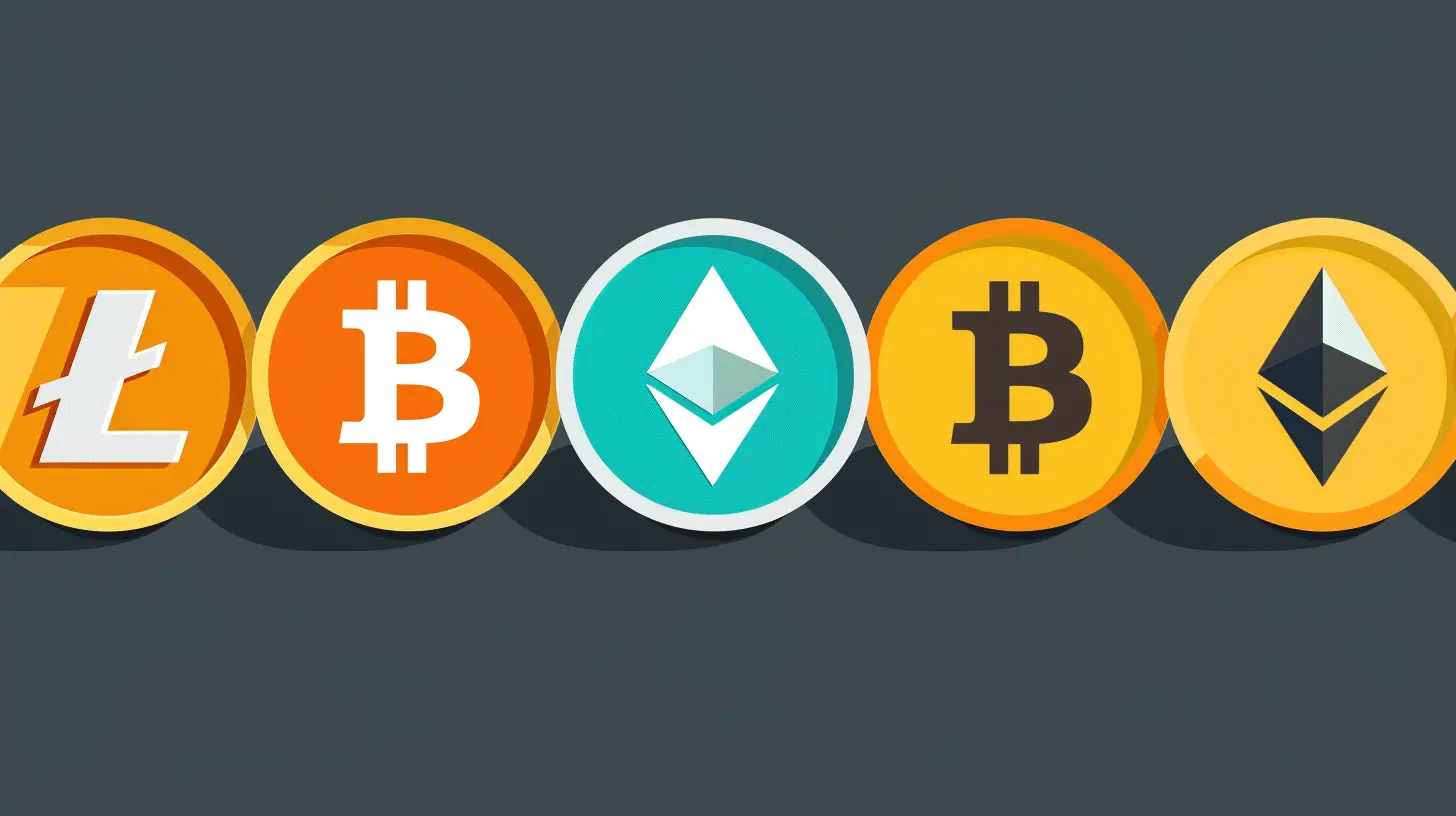The Role of Cryptocurrency in Economic Freedom
26 May 2025
Imagine living in a world where your money is completely under your control—no meddling banks, no government restrictions, and no fear of inflation wiping out your savings. Sounds liberating, right? Well, that’s exactly what cryptocurrency promises. It’s not just about Bitcoin or Ethereum; it's about financial independence, freedom from censorship, and a fairer economic system for everyone.
Cryptocurrency has the potential to revolutionize the global economy, particularly for people living under oppressive financial systems. But how exactly does it contribute to economic freedom? Let’s break it down.

What is Economic Freedom?
Before diving into the role of cryptocurrency, let’s define what economic freedom actually means. Simply put, economic freedom is the ability of individuals to control their own financial resources without government interference. It's about having the right to earn, save, spend, and invest as you choose.Unfortunately, in many parts of the world, people don’t have this freedom. Governments impose strict regulations, banks set unfair financial barriers, and inflation erodes the value of hard-earned money. This is where cryptocurrency steps in as a game changer.

How Cryptocurrency Empowers Economic Freedom
Cryptocurrency is more than just digital money—it represents a decentralized financial system that enables people to take back control. Let’s explore how it empowers economic freedom.1. Financial Inclusion for the Unbanked
Did you know that over 1.4 billion people worldwide lack access to traditional banking services? That’s a staggering number. Many of these individuals live in developing countries where banks are either inaccessible, corrupt, or simply too expensive for the average person.Cryptocurrency provides an alternative. With just a smartphone and an internet connection, anyone can create a digital wallet and start transacting. No need for paperwork, credit scores, or approval from a financial institution. This opens up incredible opportunities for people who have been excluded from the global financial system for far too long.
2. Protection Against Inflation and Currency Devaluation
Inflation is a silent thief. If you’ve ever lived in a country where the value of your currency drops almost overnight, you understand the frustration and helplessness that comes with it. Look at Venezuela, Zimbabwe, or Argentina—hyperinflation has wiped out the savings of millions.Cryptocurrencies, especially Bitcoin, act as a hedge against inflation. Since Bitcoin has a fixed supply of 21 million coins, it can’t be manipulated by governments or central banks. This makes it a reliable store of value, allowing people to protect their wealth from the devastating effects of inflation.
3. Freedom from Government Control and Censorship
Ever had your bank account frozen for no apparent reason? Or worse, ever been unable to send money because of government-imposed restrictions? Many people living under authoritarian regimes face these challenges daily. Governments have immense control over financial institutions and can restrict access to money at any moment.Cryptocurrency eliminates this issue. Since it operates on a decentralized blockchain, no single entity—be it a bank or government—can block transactions. People can send and receive money freely without fear of financial censorship.
4. Empowering Entrepreneurs and Small Businesses
Starting a business is tough enough without excessive fees, red tape, and banking restrictions. Traditional banking systems often impose high transaction fees, making it difficult for small businesses to grow—especially in developing nations.Cryptocurrency provides a solution. With low transaction fees and no need for intermediaries, businesses can operate more smoothly. Entrepreneurs can receive payments from customers across the globe almost instantly, without worrying about currency conversion rates or excessive bank charges.
5. Easy and Affordable Cross-Border Transactions
Have you ever tried to send money internationally? Then you know how slow, expensive, and complicated it can be. Traditional remittance services charge exorbitant fees, sometimes as high as 10-15% per transaction. That’s money that hard-working individuals lose just to send funds to their loved ones.Cryptocurrency changes the game. Transactions happen almost instantly, and fees are significantly lower. Platforms like Bitcoin, Ethereum, and stablecoins make sending money across borders faster, cheaper, and more efficient than ever before.
6. Encouraging Financial Privacy and Security
In today’s digital age, privacy is becoming a luxury. Every time you swipe your card or make an online purchase, your data is collected, stored, and potentially sold. Banks and financial institutions track every transaction, and your financial history is often an open book.Cryptocurrency offers a level of financial privacy that traditional banking simply can’t. While transactions on public blockchains are visible, personal identities are not directly linked to wallet addresses, providing more anonymity than traditional bank accounts.
7. Reducing Corruption and Increasing Transparency
Corruption thrives in centralized financial systems where transactions can be hidden, manipulated, or controlled by a few powerful entities. Since blockchain technology records every transaction on a public ledger, it’s nearly impossible to alter or hide financial activity.This transparency makes it harder for governments and corporations to engage in corrupt activities. Smart contracts, which are self-executing contracts on the blockchain, also eliminate the need for middlemen, reducing the likelihood of fraud and ensuring that transactions are carried out fairly.

The Challenges of Cryptocurrency Adoption
Of course, cryptocurrency isn’t without its challenges. To truly unlock its potential for economic freedom, we need to address a few key obstacles:- Volatility: Cryptocurrency prices fluctuate dramatically, making it difficult for it to function as a stable currency.
- Regulatory Uncertainty: Many governments are still figuring out how to regulate crypto, which can create uncertainty for users and businesses.
- Scams and Fraud: The crypto space is still new, and bad actors take advantage of inexperienced users through scams and Ponzi schemes.
- Usability Barriers: Not everyone is tech-savvy. For mass adoption, crypto platforms need to become more user-friendly and accessible.
Despite these challenges, the potential benefits far outweigh the risks. With continued innovation and wider adoption, cryptocurrency could play a crucial role in financial freedom for millions, if not billions, of people.

Final Thoughts: A Financial Revolution in the Making
Cryptocurrency isn’t just a passing trend—it’s a movement. A movement towards decentralization, financial independence, and economic empowerment. For those who have been excluded from the traditional financial system or oppressed by authoritarian regimes, crypto represents hope.Sure, the road ahead isn’t without obstacles, but every major financial revolution in history has faced resistance. The fight for economic freedom is no different. Whether you’re an investor, a business owner, or just someone looking for an alternative to traditional finance, cryptocurrency has the power to change the way we interact with money.
The question is—are you ready to be part of this revolution?
all images in this post were generated using AI tools
Category:
CryptocurrencyAuthor:

Audrey Bellamy
Discussion
rate this article
3 comments
Wendy Kearns
Great article! Cryptocurrency truly empowers individuals by providing financial independence and access, promoting economic freedom like never before. Thank you for sharing!
June 2, 2025 at 4:13 AM

Audrey Bellamy
Thank you for your kind words! I'm glad you found the article insightful—cryptocurrency indeed has the potential to transform economic freedom.
Oliver Sawyer
Cryptocurrency offers potential for economic freedom, but risks and volatility challenge its stability and widespread adoption.
May 27, 2025 at 10:22 AM

Audrey Bellamy
Thank you for your insightful comment! Indeed, while cryptocurrency presents opportunities for economic freedom, addressing its risks and volatility is crucial for broader acceptance and stability.
Kristen Rodriguez
Cryptocurrency enhances economic freedom by enabling decentralized transactions, reducing reliance on traditional financial systems.
May 27, 2025 at 2:35 AM

Audrey Bellamy
Thank you for your insightful comment! Indeed, cryptocurrency's decentralized nature empowers individuals by promoting financial autonomy and reducing dependency on traditional banking systems.



